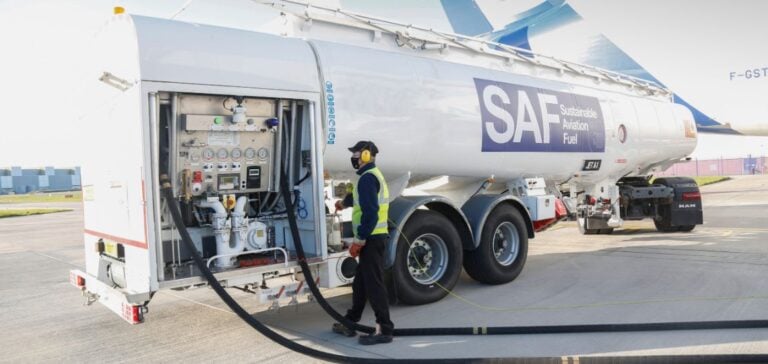NextChem, a subsidiary of the Italian company Maire, has announced the launch of a sustainable aviation fuel (SAF) production plant in Sei Mangkei, North Sumatra Province, Indonesia. This project is based on proprietary technology aimed at transforming local biomass waste into low-carbon fuel.
Once operational, this facility is expected to produce approximately 60,000 tons of SAF per year, meeting about 5% of the jet fuel demand at Soekarno-Hatta Airport in Jakarta, Indonesia’s largest airport. Production will rely on local resources such as palm oil mill effluent (POME) and used cooking oil (UCO).
A collaboration to validate feasibility
The project was preceded by a feasibility study conducted in collaboration with PT Tripatra Engineers and Constructors, confirming the availability and logistics of the necessary local biomass resources.
The plant’s design relies on two of NextChem’s core technologies: NX PTU and NX SAF BIO. These processes include the pretreatment of raw materials via NX PTU technology and their conversion into SAF through hydrogenation (HEFA process). This method promises to reduce emissions by up to 95% compared to traditional fossil fuels.
Similar projects on a global scale
NextChem is not limiting itself to Indonesia and is expanding its SAF initiatives to other regions. In partnership with KazMunayGas-Aero, the company is developing a similar project in Kazakhstan.
In the United States, NextChem has signed a licensing contract with DG Fuels Louisiana for a project utilizing NX Circular gasification technology. The U.S. plant plans to produce 450 million liters of SAF annually from biomass and waste, with commissioning expected in 2028.
Developments in Europe
In Europe, NextChem is collaborating with Sarlux Srl to integrate its technology into a SAF pilot plant in Sarroch, Italy. The goal is to expand Maire’s technological capabilities in renewable fuels while meeting strict sustainability requirements.
The SAF production cost in Southeast Asia, assessed at $1,834.27/ton on December 18, according to Platts, reflects the evolution of a growing market. These initiatives position NextChem as a key player in the global energy transition.






















